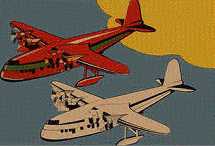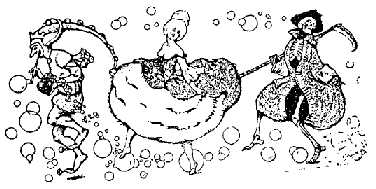 |
Vol 1, No 3, 12 July 1999
|
|
|
|
P R O S E:
temptation Ewald Murrer It is safe to say that the circle of presses consistently publishing Central European literature is fairly small and hence any new release is at least noteworthy. On the small press end of things, the Prague-based Twisted Spoon Press stands out as a unique operation with a varied and rather unpredictable catalogue of Central and East European writers and poets. It has published such well-known authors as Bohumil Hrabal and more challenging works such as the essays of the 19th-century Czech poet Otokar Brezina. In May of this year, Twisted Spoon released another Central European literary morsel. This time it is a book of short prose entitled Dreams at the End of the Night - the second in a series of works by contemporary Czech author and poet Ewald Murrer, which began four years ago with Twisted Spoon's publishing of Murrer's poetry, The Diary of Mr Pinke, the first of Murrer's work to appear in English translation. Ewald Murrer was born in 1964 in Prague. In the 1980s, he was employed by the Office of the President as a gardener at Prague Castle. After the revolution in 1989, he dedicated himself solely to literature and was for three years the editor of the influential journal of young poets Inicialy and poetry editor of the Mladá fronta publishing house. He is currently editor-in-chief of Mlada fronta Dnes magazine His first "officially" published volume of poetry appeared in 1992, and since that time he has published five further volumes of poetry and prose. His work has appeared in anthologies and journals internationally, including Child of Europe (Penguin), Daylight in Nightclub Inferno (Catbird) and This Side of Reality (Serpent's Tail). The following is an excerpt from the recently released English translation of his short prose, Dreams at the End of the Night.
* * *
temptation At present I lie alone on The company gathered in the house at the customary hour. In itself, then, this was nothing extraordinary. It could be said that all was as it should be. Herbert Lusperto de Pedurac sat in his armchair, sipping a glass of dark red wine that had been poured by the hand of his wife, Liesele. She had also served wine to the other gentlemen, Mr. Poschleier and Mr. Kever, guests of the house with whom Lusperto had just been conversing. The countryside beyond the windows of the house was growing dark; it was evening and the sky reddened the room. At the moment the walls were turning crimson someone pounded on the gate with a resolute, perhaps even a nervous, knocking. "A visitor at this hour must be bringing important news," said Lusperto, "I cannot imagine an ordinary and insignificant caller at our door at this time of day." They waited to see who would enter, hearing the opening door, the brief conversation with the doorman, the stairs being ascended, the steps in the halls. The door to the salon opened and the visitor entered - a swarthy visitor, unknown to the gentlemen. Yet Liesele had visibly become distraught, the visitor had unsettled her. Lusperto rose and, with a quizzical countenance, strode up to the visitor. "I am Ion Lupulescu, I have just flown in from Bucharest," said the visitor, introducing himself. "And what are you looking for in this house?" asked Lusperto, astonished. "I am looking for a girl in this house," answered Lupulescu. Lusperto no longer said a thing. He motioned to Liesele; she was the only woman in the house and besides, she had just flown in from Bucharest not more than an hour ago. Here, then, was the connection. Clearly the visit was for her. Lupulescu hastily walked up to Liesele and solemnly kissed her, it could be said with excessive solemnity, even confidentially, and with a considerable dose of indecent allegory. Liesele seated him at the table and poured him a glass of dark red wine. In a moment all were sitting at the table and drinking the dark red wine. Lusperto attempted to resume the interrupted conversation with Poschleier and Kever, but their chatter was contrived; it was not possible to take up again the topic. Liesele talked with the Rumanian, and their conversation confirmed the suspicions of those present: they had flown in together, and had become acquainted, on the last flight from Bucharest. Their preoccupation with one another seemed vulgar and indecorous to Lusperto and his friends - mentally they especially reproached Liesele. After a short while Lusperto could no longer bear it and quit the company, leaving the room. He paced the terrace, smoking a cigarette. Poschleier and Kever did the same. So together they smoked cigarettes and from the room the voices of Liesele and Lupulescu struck their ears. "This situation should be resolved," said Poschleier. "How?" asked Lusperto. "Let's throw the Rumanian out of the house!" proposed Kever. Lusperto nodded and they then went back into the room. They seized the Rumanian Lupulescu and led him out to the front of the house without any difficulty, as he did not resist. He walked off without even looking back. "A bit peculiar," Poschleier said of the incident. Standing on the terrace, Liesele watched the man depart. "A sign, if it were to be genuine, a sign from the heavens to convey the import of the event!" called out Lusperto who was standing behind her. "Look!" suddenly shouted Kever. 
A plane, a wooden vessel of enormous proportions, a winged ship, was drifting dangerously low over the hills. The body of this machine was so immense that in passing it darkened the sky. It drew nearer the house, and the ingenious ornamentation carved into its side could be observed from the terrace. It was a magnificent sight - the sky completely hidden by a wooden machine that was reflected, together with the peaks of the mountains, on the surface of the lake below. "The plane from Bucharest," said Lusperto. "Look, Liesele, the plane from Bucharest is approaching, just like the one you came in on today. Isn't the fact that it's flying over our house a sign? Let's wait for some detail that will enable us to decipher the precise meaning of this communication!" The wait was not long for the plane suddenly ended its fly-over with a booming clatter upon striking a rock ledge. Some figures went scurrying along the deck: an old man in uniform and several young women. Clutching the frames of opera glasses and binoculars, the company on the terrace could only mutely watch the catastrophe. The vessel tumbled over and rolled down the mountain slope toward the lake, where it stopped for a moment on the surface of the limpid water. It straightened up, and quietly, with dignity, sank to the bottom. The clear water made it possible to follow the entire descent. The craft sank slowly and disappeared in the depths, jolting and quaking against the stones on the bottom. The captain, the old man in uniform whom the company had spotted in the air, swam ashore. The women could be seen, now on the bottom, sitting dead in armchairs, swirling around in them, swirling - winding their way upward, toward the surface. "This was the sign we've been waiting for!" said Lusperto, and the whole company left the terrace. Lusperto closed the casement and went to bed. In the morning Lusperto went for a walk to the lake. He found the prints of five pairs of girl's feet in the sand of the bank. The sole-prints of the dead women's souls. When he returned home, he said to Liesele: "Your child is crying, go comfort little Rosali." And Liesele went and comforted little Rosali. Translated by Howard Sidenberg. Dreams at the End of the Night is available from Twisted Spoon Press.
|
|
![]()
Copyright (c) 1999 - Central Europe Review Internet servis, a.s.
All Rights Reserved
